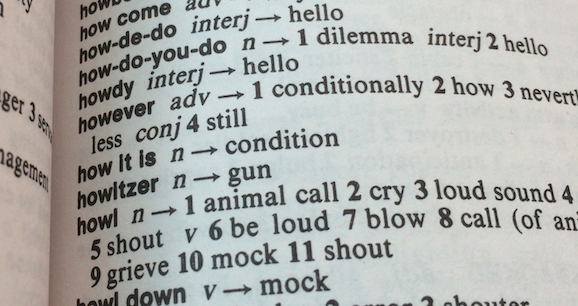How however almost kicked but’s butt: linguistics study

However you are using the word however, be aware you might be getting it wrong.
A new analysis of more than a century of books, newspapers, magazines and online writings has revealed the life and journey of the word however, but particularly its common misuse as a synonym for but.
University of Melbourne researcher Andrew Hamilton has dubbed the erroneous trend Conjunctive Howeveritis, a phenomenon that peaked in the 1980s and 1990s.
His study shows that instead of correctly using however as an adverb, it is often misappropriated as a conjunction.
For example, according to the Cambridge English Dictionary:
“My teacher is very nice but a bit strict” not “My teacher is very nice however a bit strict”.
Dr Hamilton is a renowned ecologist and an Honorary Principal Fellow with the University’s Faculty of Veterinary and Agricultural Sciences, but has had a long-standing interest in linguistics.
He pored through more than 100 years of literature with the aid of trends-tracking software to analyse how the word has been used from 1900 to 2008.
“I personally noticed this trend after having to stop and re-read sentences like ‘however the cat walked down the street’,” Dr Hamilton said.
“This has the reader thinking that the author meant ‘in whatever manner the cat walked down the street’.”
Dr Hamilton analysed the misuse of however both at the beginning of a sentence (sentence-initial conjunction) and in-between (within-sentence conjunction).
Looking at however as a sentence-initial conjunction, Dr Hamilton said its incorrect use has risen roughly since World War II and has been mirrored by a decrease in the use of but.
Dr Hamilton suggested the trend is a result of the common misconception that sentences should not start with but.
"However sounds much more impressive," he said.
Dr Hamilton’s study has been published in the journal English Today of Cambridge University Press.